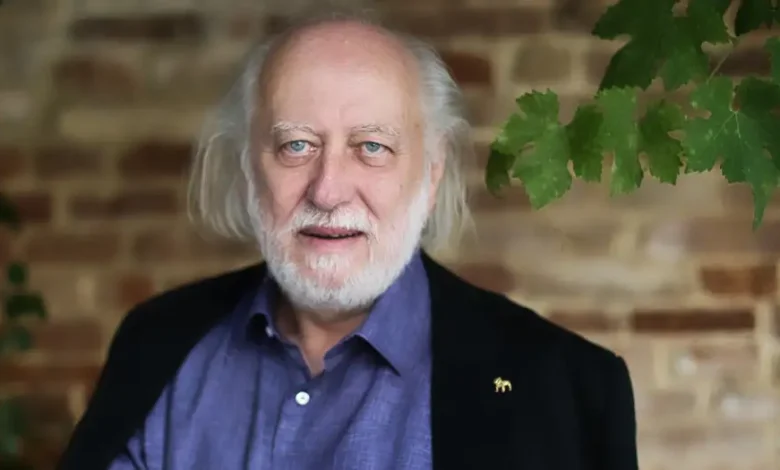
Hungarian author László Krasznahorkai has been awarded the 2025 Nobel Prize in Literature, the Swedish Academy announced on Thursday.
The Academy honored Krasznahorkai “for his compelling and visionary oeuvre” that, in the words of permanent secretary Mats Malm, “reaffirms the power of art in the midst of apocalyptic terror.”
The 71-year-old novelist and screenwriter is celebrated for his postmodern and often dystopian depictions of life in small Hungarian towns. His acclaimed novels, including “Satantango” (1985) and “The Melancholy of Resistance” (1989), were adapted into award-winning films by Hungarian director Béla Tarr, with whom Krasznahorkai has maintained a long and fruitful artistic partnership, reports dw.com
Describing the laureate, Malm called him “a great epic writer in the Central European tradition that extends through Kafka to Thomas Bernhard, marked by absurdism and grotesque excess.”
Widely regarded as one of the most prestigious honors in the literary world, the Nobel Prize has long been anticipated for Krasznahorkai, who has been considered a frontrunner for over a decade.
Born in Gyula, Hungary, in 1954, Krasznahorkai studied literature at the University of Budapest and left communist Hungary in 1987 on a DAAD fellowship to West Berlin. After publishing his debut novel “Satantango”, he quickly rose to national prominence.
Following the fall of communism, he traveled extensively in China, which inspired his 2004 travel memoir “Destruction and Sorrow Beneath the Heavens.” His 2006 novel “War & War” follows an archivist’s journey from Budapest to New York — a period during which Krasznahorkai lived in Allen Ginsberg’s apartment, an experience that deeply influenced his writing.
His more recent novel, “Herscht 07769” (2021; English translation 2024), has been described as “a great contemporary German novel.” Set in Thuringia, the work captures social unrest through a series of long letters to Angela Merkel, blending the chaos of modern Germany with reflections on Johann Sebastian Bach’s legacy. Remarkably, the 400-page book contains only one full stop, a hallmark of the author’s signature “flowing, unbroken syntax,” as the Swedish Academy noted.
Despite international acclaim — including the 2015 International Booker Prize and the 2019 US National Book Award for Translated Literature — Krasznahorkai has led a quiet life in the Hungarian countryside in recent years.
Known for his darkly humorous worldview, Krasznahorkai once told The Guardian when asked which of his books new readers should begin with: “If there are readers who haven’t read my books, I couldn’t recommend anything. I’d advise them to go out, sit down somewhere by a brook, do nothing, think nothing — just remain in silence like stones. They will eventually meet someone who has already read my books.”
Krasznahorkai becomes the second Hungarian-language author to win the Nobel Prize in Literature, following Imre Kertész in 2002.
Follow The Times Kuwait on
X, Instagram and Facebook for the latest news updates












